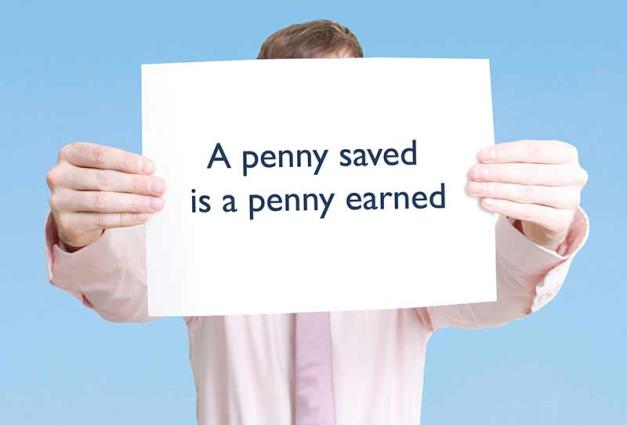Ivanka Trump testified recently in a fraud trial, in which her father—Donald Trump—is accused of inflating the value of assets to obtain favorable loans. When presented with documents reflecting her involvement in securing the loans, which Ms. Trump personally benefited from, she maintained that she was not privy to her father's financial statements.
If Ms. Trump was indeed ignorant, she was most likely engaging in what scientists called "willful ignorance:" intentional avoidance of information about the potential harm of one's action. This behavior is widely evident, not only in cases of corruption but also in everyday life. Despite growing scientific evidence of climate change, many people still avoid engaging with facts about global warming. People do not always want to know about the harsh living conditions of farm animals. Consumers also often ignore the ethical origins of the products they purchase.
I wanted to know how common and harmful willful ignorance is, as well as why people engage in it. So, together with my colleagues, I conducted a meta-analytic review, summarizing 22 research projects that involved more than 6,000 participants altogether.
Studying Willful Ignorance
In these experiments, scientists asked participants to choose between two options that determine their and their partner's earnings in one of two settings. In the transparent setting, participants had to decide between receiving a smaller reward ($5) and a larger reward ($6). If they chose the smaller $5 reward, their partner would also receive $5. If they chose the larger $6 reward, however, their partner would receive only $1.
In the ambiguous setting, participants knew which option gave them the larger $6 reward. They did not know immediately, however, if their partner would receive $1 or $5 if they would choose this larger reward for themselves, as both possibilities are equally likely. Participants were then offered an opportunity to resolve the ambiguity. They could learn the outcomes for the partner before making their choice effortlessly by clicking a button. That is, if they wanted to know.
I found that in the transparent setting, in which people were told the consequences of their choices, 55% of participants chose altruistically, giving up a part of their earnings to share equally with their partner. However, when participants had to choose whether to know how their choice would impact their partner, 40% remained ignorant. Not knowing freed participants to choose the higher reward for themselves without the burden of knowing how their choice deprived their partner. This ignorance led to a 16-percentage-point decrease in altruistic choices, down from 55% to 39%.
Is It Willful?
But how do we know if this ignorance was willful? Did participants intentionally avoid information because they wanted an excuse to be selfish or were they simply distracted or confused by the experiment? To understand the motivation behind ignorance, I conducted a second analysis.
I looked at how some participants behaved after they chose to receive information about the consequences in the ambiguous setting. Interestingly, these participants were 7 percentage points more likely to make altruistic choices than participants who were told the consequences in the transparent setting. This finding suggests that these participants were truly altruistic: They sought out the relevant information to benefit their partner even at a cost for themselves.
On the flip side, the finding also suggests that some participants chose ignorance willfully, at least partly because they needed an excuse to be selfish. That is, if all of ignorance was driven by distraction or confusion alone, participants would all be equally likely to obtain information regardless of their intention to benefit their partner. That was not the case.
Implications
Taken together, my review suggests that some altruistic behaviors are done reluctantly. Take, for example, fast fashion. When people know how some companies take advantage of their workers and source their materials unsustainably, they feel obligated to not support those brands and look for more ethical and expensive alternatives. But when such information is unclear and people must take action to discover whether the brands they like are engaging in green-washing or not, they may want to remain ignorant. Turning a blind eye to unethical business practices allows people to continue buying trendy clothes at competitive prices without feeling guilty or feeling like a bad person.
So how can you combat willful ignorance? Decisions like those I studied here are framed in a moralistic way—people can benefit themselves at the expense of others. Moralistic framing poses a threat to people's self-images and creates fertile ground for willful ignorance. Avoiding a strong moral emphasis on decisions may make people feel less threatened, and hence, less inclined toward willful ignorance, an idea that should be tested more systematically in future research. Instead, you can opt for other methods to promote altruistic behaviors such as making the ethical options the default option or encouraging people to think more positively about doing a good deed rather than guilt-tripping people for what they failed to do well.
For Further Reading
Vu, L., Soraperra, I., Leib, M., van der Weele, J., & Shalvi, S. (2023). Ignorance by choice: A meta-analytic review of the underlying motives of willful ignorance and its consequences. Psychological Bulletin, 149(9-10), 611–635. https://doi.org/10.1037/bul0000398
Linh Vu is a doctoral candidate at the University of Amsterdam in the Netherlands, where she studies how people make ethical decisions and why.




